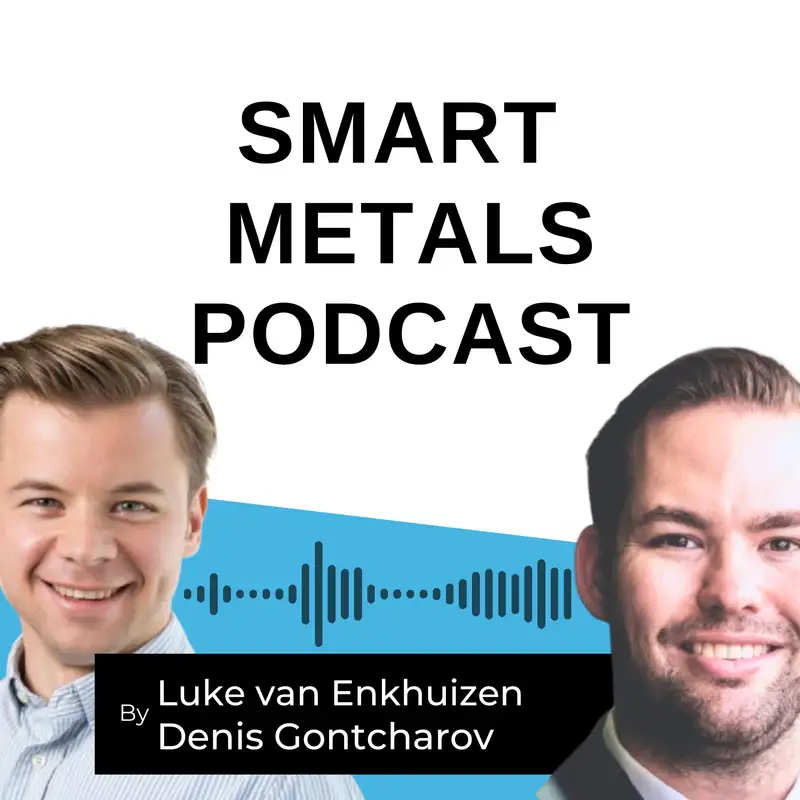
Navigating the Future of Factory Connectivity with Russ Waddell
This week at Smart Metals Podcast, we, the hosts Denis Gontcharov and Luke van Enkhuizen, had a fascinating conversation about the future of factory connectivity with Russ Waddell, an expert in industrial connectivity.
We explored the challenges of integrating manufacturing systems, the importance of cultural and technological shifts, and how to leverage AI and data science to unlock the full potential of manufacturing processes.
We delved deeper into topics like the evolution of industrial connectivity, unified namespaces, and strategies for starting your digital transformation journey. If your current challenge is connecting your manufacturing systems, scaling digital projects, or understanding how to use your data effectively, then listen to this episode when you have a moment.
🎧 LISTEN NOW ➡️
Topics
[00:00] 🎙️ Welcome to the Smart Metals Podcast
[00:40] 🔍 Russ Waddell: Journey into Industrial Connectivity
[08:20] 🌐 Defining Factory Connectivity
[17:44] 🚧 Challenges and Opportunities in Factory Connectivity
[27:52] 🏭 Evolution of Machining and Paperless Operations
[29:18] 💡 Technological Advancements and Their Impact
[32:13] 🛠️ The Role of Software in Modern Manufacturing
[36:21] 🔮 Future Trends and Cultural Shifts in Manufacturing
[00:00] 🎙️ Welcome to the Smart Metals Podcast
[00:40] 🔍 Russ Waddell: Journey into Industrial Connectivity
[08:20] 🌐 Defining Factory Connectivity
[17:44] 🚧 Challenges and Opportunities in Factory Connectivity
[27:52] 🏭 Evolution of Machining and Paperless Operations
[29:18] 💡 Technological Advancements and Their Impact
[32:13] 🛠️ The Role of Software in Modern Manufacturing
[36:21] 🔮 Future Trends and Cultural Shifts in Manufacturing
Interesting Quotes
• “If you could just see the data in all of your industrial controllers… Imagine what you could do with that. Everything else we talk about comes back to your favorite use case for that data.” – Russ Waddell
• “When we talk about factory connectivity, everyone has a different definition. A machine maker, a software seller, or someone on the factory floor will all see it differently. That’s why it’s so important to have conversations like this to get a clearer picture.” – Luke van Enkhuizen
• “AI has created a major use case for having all the data in one place. That’s why connectivity is more relevant than ever.” – Denis Gontcharov
• “AI is clearly the next step after basic monitoring and predictive analytics. But it needs clean, accessible inputs. The cleaner the data, the more time your team can spend on building algorithms instead of copying and pasting from CSV files.” – Russ Waddell
• “When you step into some manufacturing facilities, it feels like you’re back in the 80s or 90s. That’s not just a technology problem—it’s a cultural one. Companies need to learn what’s possible and build small-scale successes to see the potential.” – Luke van Enkhuizen
• “If you could just see the data in all of your industrial controllers… Imagine what you could do with that. Everything else we talk about comes back to your favorite use case for that data.” – Russ Waddell
• “When we talk about factory connectivity, everyone has a different definition. A machine maker, a software seller, or someone on the factory floor will all see it differently. That’s why it’s so important to have conversations like this to get a clearer picture.” – Luke van Enkhuizen
• “AI has created a major use case for having all the data in one place. That’s why connectivity is more relevant than ever.” – Denis Gontcharov
• “AI is clearly the next step after basic monitoring and predictive analytics. But it needs clean, accessible inputs. The cleaner the data, the more time your team can spend on building algorithms instead of copying and pasting from CSV files.” – Russ Waddell
• “When you step into some manufacturing facilities, it feels like you’re back in the 80s or 90s. That’s not just a technology problem—it’s a cultural one. Companies need to learn what’s possible and build small-scale successes to see the potential.” – Luke van Enkhuizen